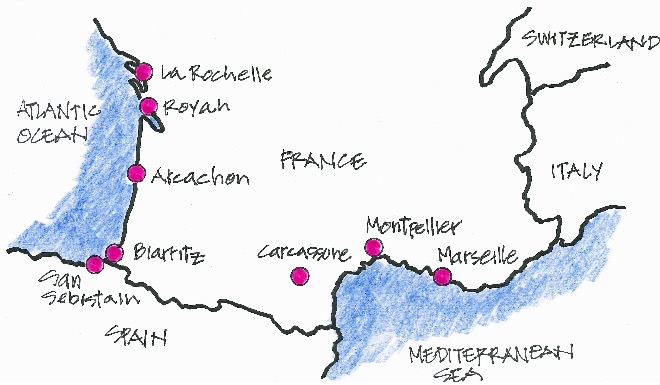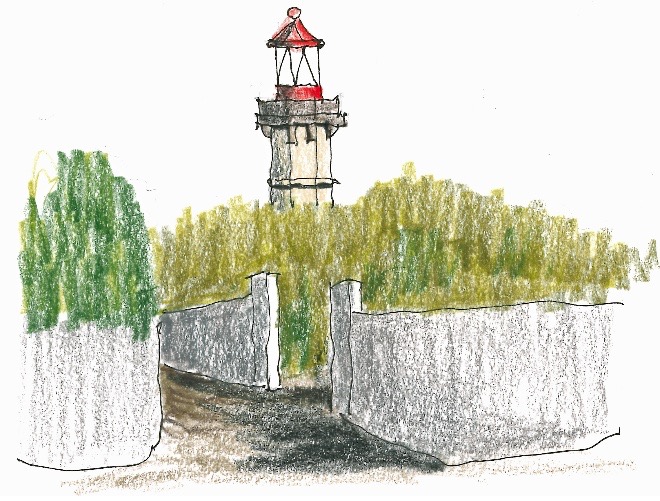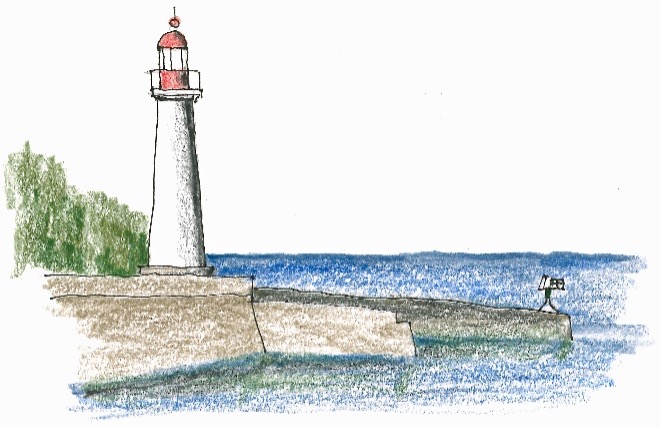Night Train to Leningrad


We’re stopped on a siding now and I hear the blaring screech of a steam whistle as a train passes us going the opposite direction. Our sleeping car is shaking.
As the train starts to move again I swing my legs over the side of the bunk and rotate so my feet find the ladder. Stepping into my shoes I quietly open the compartment door and slip into the companionway. There are no sounds except the clacking of the wheels on the track. At the end of the car a great bronze samovar sits over a charcoal fire, glass cups in pewter holders and small spoons stacked on a ledged shelf.
The toilet is western, thank god for that. No water, no soap, but a small mirror. In the dim light I look ghastly pale. It’s nearly midnight but at midsummer there’s no real darkness even in the middle of the night. Back in bed I adjust the coarse woolen blanket. It isn’t the first time I couldn’t sleep on a night train. I’m quite worried and I’m not a worrier. My god, why did I volunteer to help them? The train clatters on now swinging side to side. I close my eyes and drift.
After four days in Helsinki, reveling in the architecture of Eliel Saarinen and Alvar Aalto, I’m now on my way to Leningrad to meet my wife Bobbi who’s been attending the International Botanical Conference. I’m sharing a compartment with an older woman from New York, who is also headed for the conference, and a young couple returning to Hungary after their holiday in Finland. They seem surprisingly thin and in their early thirties, about my age. Maybe that’s why I’d agreed to help them smuggle the magazine.
The Hungarians had said the border guards would confiscate it. And they were no doubt right—this was the Soviet Union at its apogee in 1975. They could have easily hidden it beneath the mattress, but maybe the guards search there. They said they would not bother an American. But how do I know that for sure? Perhaps there are secret papers interleafed between the pages; what if the pages have been hollowed out to hide paper currency like in the spy movies? Or worse yet a packet of heroin. Jesus! I could spend the rest of my life in a Soviet prison. The paranoia! It’s only a Readers Digest for god’s sake. I close my eyes and search for rationality, but fear has none.
There is commotion out in the companionway. Knocking on doors. Ah, but it’s just the matron with tea service. I greedily take a cup, anything for distraction. It’s a bit lighter outside even though it’s never really been dark.
The plan was to meet Bobbi at the Europa Hotel. We’d attend the final banquet of the conference the next evening and then take Aeroflot to Moscow for a post-conference tour. It was a good plan if I can get across the border into the Soviet Union and if I find the hotel.
The sound of heavy boots outside and pounding on our door. We must be at the border. I sit on the edge of the bunk and feel my heart racing. Do I look guilty? Two olive uniforms trimmed in red. High peaked officers’ caps with shiny black brims. Black boots. They are speaking Russian to the Hungarians, asking questions. All is calm but one of the guards is rifling through their luggage and flipping the mattress over. My heart is racing and I break a sweat.
Next the gray-haired American woman—all of a sudden the matron is there to interpret their questions. They aren’t looking in her luggage.
I take several deep breaths and straighten my shoulders. Perhaps it would not be so easy for a young bearded long-haired guy. Maybe they think I looked like a hippy. But… same questions. I look them straight in the eye. Don’t want to be shifty eyed.
“Where are you from?”
“Where are you going?”
“Why?”
“Where will you be staying?”
“For how long?”
“Do you have firearms?”
“Alcohol?”
No luggage rummaging. The guards turn on their heels and stomp out, followed by the matron. Deep breath. The door slams shut. I take more deep breaths and sit a while longer. When the guards are well past I jump down, open my suitcase and hand the Readers Digest back to the Hungarian couple. They thank me profusely, I give them a smile of relief—I’m now a successful bootlegger.
The whistle screams. We are coming into Finlyandskiy Station, the very station where Lenin had arrived from Finland in the summer of 1917 to lead the October Revolution against bourgeois oppression. I’m not so caught up in history as in looking for the hotel—I have only a street address and verbal instructions, no map.
I grab my luggage, head to the end of the car and descend into a rush of travelers. I turn right leaving the station onto Komconona and then left taking the Liteynyy Bridge across the Neva River right on Ital’yanskya, left on Mikhaylovskaya. Miraculously there is Bobbi walking down the sidewalk toward me and turning into the Europa. A deep breath and a huge hug.
“How was the train ride?”
“Long.”















Comments